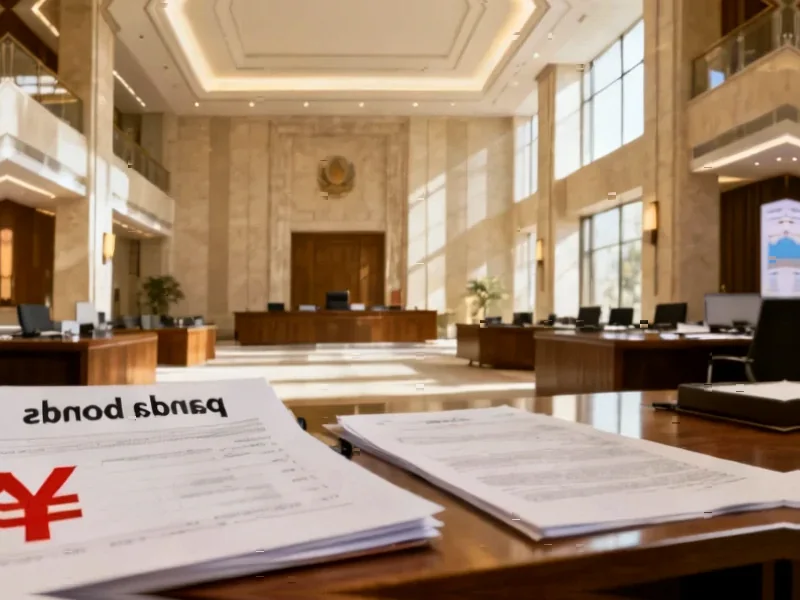According to Financial Times News, Starbucks has agreed to sell a majority stake in its China business to private equity group Boyu Capital for $4 billion, with the Hong Kong-based firm taking up to 60% interest in approximately 8,000 stores. The deal values Starbucks’ China retail business at over $13 billion, including proceeds from the sale, the value of Starbucks’ retained 40% stake, and future licensing payments. CEO Brian Niccol stated that Boyu’s “deep local knowledge and expertise” will help accelerate growth as Starbucks aims to expand from 8,000 to 20,000 stores in China, which would surpass its current North American footprint. The company had been evaluating offers from five bidders, with Boyu and Carlyle emerging as leading contenders in recent weeks.
The Capital-Light Expansion Playbook
This transaction represents a sophisticated capital-light expansion strategy that’s becoming increasingly popular among Western brands in China. By selling majority ownership while retaining the brand and licensing rights, Starbucks gets the best of both worlds: significant upfront capital infusion ($4 billion) plus ongoing revenue through licensing fees, without bearing the full operational burden of expansion. The model resembles franchise arrangements but with greater control over brand standards and intellectual property. For Starbucks, this means they can pursue aggressive store growth targets (more than doubling to 20,000 stores) while shifting the capital expenditure and operational execution risk to Boyu Capital’s balance sheet.
Why This Deal Makes Sense Now
The timing is strategically brilliant given current market conditions. China’s economic recovery has been uneven, with consumer spending showing volatility and real estate values declining in many markets. By partnering with a local private equity firm that understands these dynamics, Starbucks gains flexibility to navigate the challenging environment while maintaining its growth trajectory. Boyu Capital’s connections and market intelligence will be invaluable as Starbucks expands into smaller cities where consumer behavior differs significantly from the first-tier cities where Starbucks initially established its presence. This move also comes as local competitors like Luckin Coffee have demonstrated the massive potential in China’s lower-tier cities with different operating models and price points.
The Financial Engineering Behind the $13B Valuation
The $13 billion total business valuation deserves closer examination. This isn’t just a simple equity sale—it’s a multi-layered financial structure that includes the $4 billion cash infusion, the retained 40% equity stake, and future licensing revenue streams. This approach allows Starbucks to book immediate gains while maintaining significant economic exposure to China’s growth story. The licensing arrangement is particularly clever—it creates a predictable, high-margin revenue stream that’s insulated from operational costs and market fluctuations. For Boyu, the deal provides control over one of China’s most valuable retail footprints with immediate scale (8,000 stores) and a clear expansion roadmap. Both parties benefit from the shared upside potential while distributing risks according to their respective strengths.
Navigating China’s Evolving Coffee Wars
Starbucks faces intensifying competition in China from multiple fronts. Luckin Coffee has demonstrated the viability of a technology-driven, value-oriented model that resonates with younger Chinese consumers. Meanwhile, local tea chains and regional coffee brands are capturing market share with hyper-localized offerings. This partnership with Boyu positions Starbucks to compete more effectively across price segments and geographic markets. The capital infusion and local expertise will be crucial for accelerating store openings in underserved markets while fending off competitors who’ve been gaining ground. The deal essentially gives Starbucks the resources to fight a multi-front war without diverting significant capital from its core North American and international operations.
What This Means for Global Retail in China
This transaction could become a blueprint for other Western brands navigating China’s complex retail landscape. The model offers a middle ground between full ownership (with its operational complexities and capital demands) and traditional franchising (which often sacrifices control). For global retailers watching this deal, it demonstrates how to leverage local expertise while maintaining brand integrity and economic participation. The success or failure of this partnership will influence how other consumer brands approach China expansion, particularly as the market matures and requires more sophisticated localization strategies. If successful, we may see similar structures emerge across retail, food service, and consumer goods sectors seeking to balance growth ambitions with operational realities.




